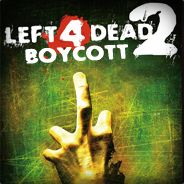What The Left 4 Dead 2 Boycott Means For The Games Industry
 Left 4 Dead 2 was announced at E3 this year. A group of disgruntled gamers have since started a boycott of the game. I don’t want to speak about the specifics of the boycott, but instead, touch on what this means for the games industry.
Left 4 Dead 2 was announced at E3 this year. A group of disgruntled gamers have since started a boycott of the game. I don’t want to speak about the specifics of the boycott, but instead, touch on what this means for the games industry.
Lets get straight into it, the L4D2 boycott means the following:
- The games industry has reached mature adult status
- Depending what Valve does from here, it may not see itself in the “Big 5” for much longer
- It’s not just about the money
The games industry has reached mature adult status
This isn’t the first time gamers have complained about a game. Truth be told, gamers don’t stop complaining about games. However, this is the first time a large group of gamers, with an intelligent manifesto have come forward with a mature complaint. Gone is the tantrum styled foot stamping the games industry is used to. We’ve moved beyond our simple bitching and into the realm of mature adults, where genuine concerns are raised and a solution put on the table. The ball is now in Valve’s court…
Depending what Valve does from here, it may not see itself in the “Big 5” for much longer
Firstly, you may be asking what the “Big 5” is. This is the group of major game studios that are highly respected and form the backbone of the games industry as it stands. I’ve formed this list after many late night discussions with game developers discussing who’s doing it right, and who everyone really wants to work for. These include:
- Valve (L4D, Half-Life)
- Relic (Homeworld, Dawn of War, Company of Heroes, The Outfit)
- Bioware (Baldur’s Gate, Neverwinter Nights, Mass Effect)
- Blizzard (Starcraft, Warcraft, WOW)
- Bethesda (Morrowind, Oblivion, Fallout 3)
A mature, valid complaint has been handed to Valve. How they react to this is going to shape both their business into the future, as well as the games industry as a whole. If Valve treat this as the prepubescent tantrum they are used to, they could see themselves in deep water.
The easiest solution for Valve is to simply ignore the boycott and move on, business as usual. This is the most likely outcome, however they have a great opportunity to set an example for other big studios. Surprisingly, it’s been gamers who have stepped up to the mark with this mature response. It’s important that Valve think long and hard about how they respond to this.
It’s not just about the money
This brings me to the core issue here. Since games were first made, there has been a gradual movement from making great games, to making games that sell well. While this was inevitable as game studios moved from backyard, small teams to large corporations with share holders to keep happy. This has gone on in the background and gamers have more or less accepted it. The symptoms have been a reduction in game quality, a focus on sequels/safe games and what some call a “watering down” of what games are really about. The boycott has brought this quest for money into the open and is asking one of the worlds greatest game studios a question. What’s more important, great games, or lots of money?
 I build software. The best place to find me is on
I build software. The best place to find me is on